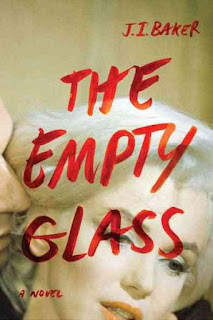A long novel and two collections of short stories were under
discussion in Nevermore. More
accurately, the first was a non-fiction book about the history of Doctor
Zhivago rather than the book itself.
The Zhivago Affair by
Peter Finn and Petra Couvee tells the fascinating story behind the famous novel
which was unpublishable in Russia at the time.
Poet Boris Pasternak gave a copy of his novel to a contact who was
working for an Italian publisher. The book
was smuggled out of the country and published to great acclaim in the West and
to great upset in the Soviet Union. The
book’s depiction of the Russian Revolution and the individualistic themes did
not set well with the regime. The CIA,
however, decided the book could be used as a wonderful piece of propaganda and
printed thousands of copies in handy sizes for smuggling into the U.S.S. R. The
authors used some newly released classified documents to reconstruct some of
the covert events as well as present a fascinating look at Pasternak
himself. Our reader found it a
compelling book.
Arthur C. Clarke was a master storyteller. Although best known for novels such as 2001: A Space Odyssey, he wrote wonderful short
stories as well. Tales from the White Hart is a collection of these stories,
bound together by the place where they are told: a bar named The White Hart. There a motley
assortment of scientists, writers, and interested bystanders gather to swap stories. The main teller is Harry Purvis, an obnoxious
man who may or may not be telling the truth.
The Nevermore readers says the tales are great fun, and very humorous.
Another set of short stories was up next. The Assassination of Margaret Thatcher
by Hilary Mantel is a collection of short stories set in contemporary England. Jud said there is “quite a range of subject
matter,” and that some of the stories are rather bleak. However, the characters
are complex and the writing is very fine.
The title story has an IRA agent trying to gain access to a good position for a
shot at then Prime Minister Thatcher dealing with an upper class homeowner who
believes the agent to be a plumber. This is a bit of a change of pace for
Mantel, who is best known for historical novels such as Wolf Hall.
The Nevermore Book Club meets every Tuesday at the Bristol Public Library in the Frances E. Kegley Conference Room. Members bring the book they're currently reading or just want to recommend to others. Doughnuts are provided by The Blackbird Bakery! Everyone is welcome to attend.










